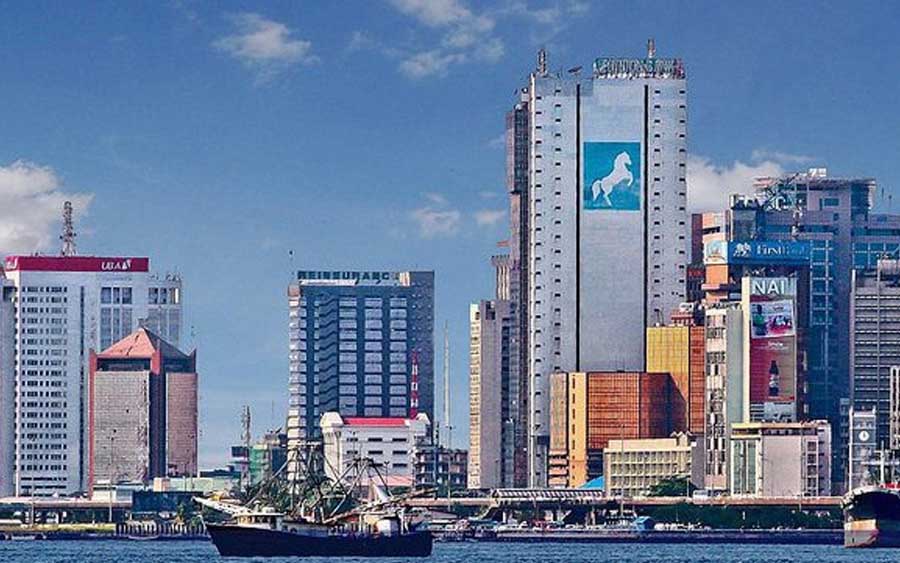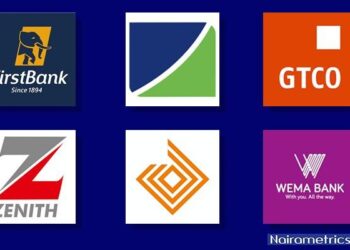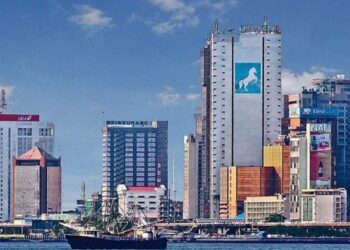The financial approach used by Nigeria’s oil companies against lower oil prices will affect their chances of making it through and negatively affect their financial lenders.
It is obvious that some of the most over-leveraged oil companies in Nigeria will not survive the current price collapse due to bad debts while other conservatively managed oil companies will start the process into restructuring their debts with their lenders if the current level of crude oil price is maintained for many weeks.
The financial health of energy companies based in Nigeria and their resolve to service their debts are extremely vital to the banking industry of Nigeria.
Oil companies accounted for about 30% of all banking-sector loans recorded in the third quarter of 2019, and their borrowing took about 24% of all non-performing loans in Nigeria.
[READ MORE: Nigerian banks’ non-performing loans drop significantly by 41% in 2019)
Commercial banks in Nigeria with heavy exposure to Nigerian oil producers include Nigeria tier-one banks. The oil price plunging along with the devaluation of the naira has indirect effects on the Nigerian banking industry.

Princejoe Nnaji, a Management expert in a leading bank in Nigeria told Nairametrics in a phone chat that, “I don’t foresee global demand increasing significantly and project that crude oil prices will remain low throughout this 2nd Quarter putting Nigeria Banks at risk to oil company’s exposure once again. This would impact 3 key aspects:
“Just as the drop in crude oil prices is expected to breach the Nigerian government’s 2020 projected revenues, the commercial banks are not exempted from this effect because there will an extension of moratorium periods and loan repayments and a significant drop in new debt to oil companies as Nigerian banks seek to proactively prevent a 2015 oil crisis déjà vu. This would surely lead to a fall in the Interest and Non-Interest Income banks have projected to earn from oil companies.
“Slight Up-Tick In NPLs: While banks focus on negotiating with local oil companies to restructure their loans in line with current realities, it is expected that all banks will migrate a significant portion of oil companies exposure due within the next 12 months from Stage 1 to Stage 2. That should be based on the IFRS 9 requirement on expected credit loss because the probability of default variable has increased and the small companies would most likely default.
“I, however, don’t see it affecting banks the way it did in 2015, as banks have learnt from the past by reducing previously breached single obligor limits and improved the strength of collaterals to adequately cover loans.”
Downgrade by Rating Agencies:Nnaji explained that in 2020, credit ratings agency ‘Fitch’ has downgraded three Nigerian banks’ Long-Term Issuer Default Ratings (IDRs) to ‘B’ from ‘B+’ and placed 10 Nigerian banks on a Negative watch.
He said, “Given the possibility that the quality of oil companies loan asset may deteriorate significantly depending on the duration of the pandemic and continued impact on oil prices, several banks aside the current top 3 profitable banks are going to be downgraded.”
Indigenous oil and gas companies are expected to struggle as oil prices continue to decline. It’s expected that a moratorium on debt repayments will be worked out between banks and oil-producing companies in Nigeria.
READ ALSO: Nigerian banks face gloomy future over low oil prices, coronavirus
Price swings usually bring its own good moments for those who have refrained from excessive borrowing. The crude oil price slump creates opportunities for cash-rich oil businesses and oil companies with low leverage exposure in selecting excellent producing assets at a bargain.
However, naira devaluation may also provide some comfort for Nigerian banks as the financial results posted by some of them showed significant asset holdings in dollars, as they predicted naira devaluation would happen at some point. So they will most likely make some revaluations gains from the naira weakening against the dollar.
Meanwhile, Nairametrics had reported commercial banks in Nigeria are set to begin the recovery of N6.125 trillion borrowed by oil firms to braze themselves amidst the sector’s recapitalization fears.
READ MORE: CBN stops oil companies from selling dollar to NNPC, here’s why
The banks have reportedly issued correspondences to oil firms, marginal filed operators and downstream operators, as debts in the sector, according to a 2018 CBN financial stability report, showed that N1.235 trillion had been added to the sector’s debt profile since 2016 when it stood at N4.89 trillion.
Banks are beginning to takeover collateral tied to the loans, a management staff of one the marginal field oil firms reportedly said over the weekend, as banks followed up on the correspondence sent to his firm.























